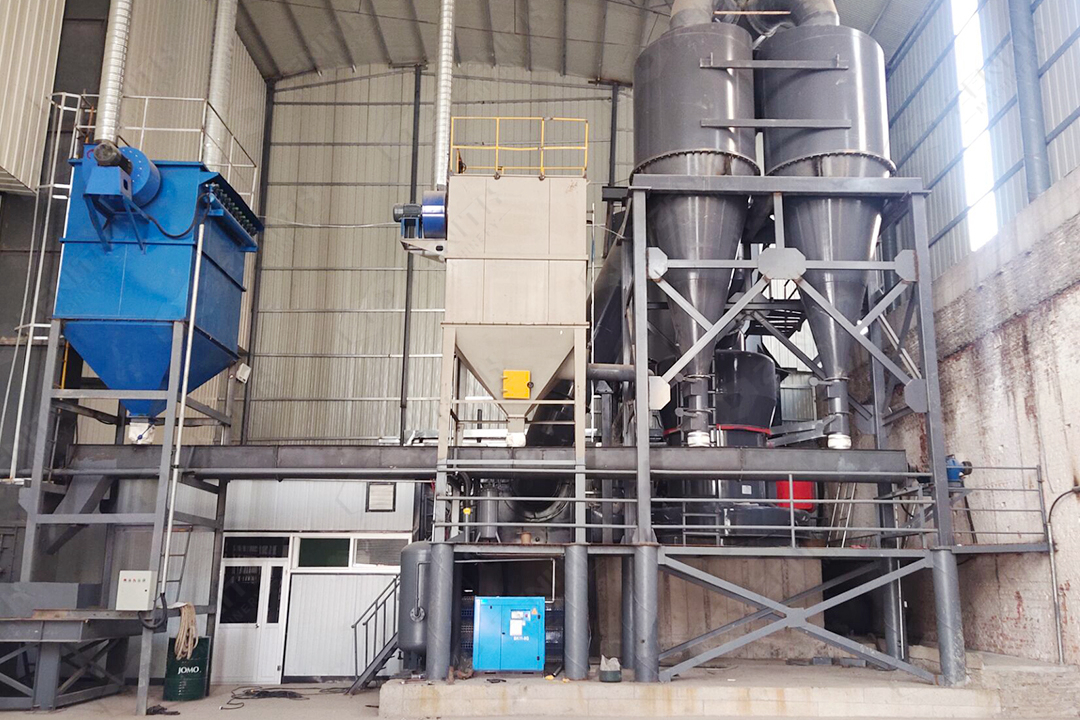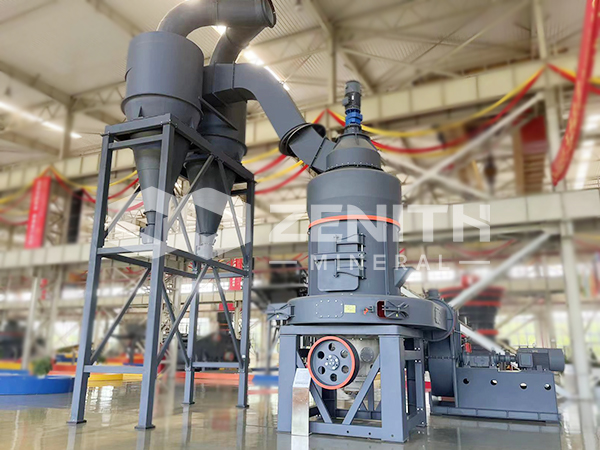The olive pomace ultrafine grinding mill with a production capacity of 2 tons per hour produces a finished product with a particle size of 5 microns.
2025-11-19 12:56:20
In the evolving landscape of agricultural waste valorization, the transformation of olive pomace into high-value products demands advanced technological solutions. The development of an ultrafine grinding system capable of processing 2 tons per hour of olive pomace while achieving a consistent 5-micron particle size represents a significant breakthrough in biomass processing technology.
_1763528180428.jpg)
Our engineering team at Zenith Machinery has leveraged decades of industrial grinding expertise to create a specialized solution for olive pomace processing. The challenge of transforming this fibrous, moisture-variable byproduct into a uniform ultrafine powder requires careful consideration of material characteristics, grinding mechanics, and thermal management.
Technical Innovation in Olive Pomace Processing
The heart of this 2 TPH system incorporates our advanced LUM Ultrafine Vertical Grinding Mill, specifically modified for organic biomass applications. Unlike conventional grinding systems designed for minerals, this specialized configuration addresses the unique challenges posed by olive pomace, including its oil content, fibrous structure, and tendency to agglomerate.
The grinding chamber features enhanced material flow dynamics that prevent clogging and ensure consistent throughput. Specialized roller and grinding disc configurations provide the precise pressure control necessary to achieve the target 5-micron particle size without excessive heat generation that could degrade the valuable components within the olive pomace.

Particle Size Control and Quality Assurance
Achieving and maintaining the 5-micron specification requires sophisticated classification technology. Our system integrates a high-efficiency turbo air classifier with variable frequency drive control, allowing operators to fine-tune the separation parameters in real-time based on feed material variations.
The precision of this classification system ensures that 95% of the output falls within the 4-6 micron range, providing the consistency required for high-value applications such as food supplements, cosmetic ingredients, and specialized industrial additives. This level of control transforms olive pomace from a waste product into a premium raw material.
Energy Efficiency and Operational Economics
Despite the energy-intensive nature of ultrafine grinding, our system achieves remarkable efficiency through several innovative features. The grinding mechanism operates at approximately 40% lower energy consumption compared to conventional ball mills of similar capacity. This efficiency translates to significant operational cost savings, making the valorization of olive pomace economically viable even at moderate production scales.
_1763528180434.jpg)
The integrated automation system continuously monitors and optimizes power consumption, adjusting operational parameters to maintain peak efficiency throughout production runs. This intelligent energy management contributes to both economic and environmental sustainability.
System Integration and Process Flow
The complete processing line begins with pre-treatment stages where olive pomace is conditioned to optimal moisture content and foreign materials are removed. The prepared material then enters the main grinding system through a precision feeder that maintains consistent feed rates crucial for stable operation.
Within the grinding chamber, multiple grinding zones progressively reduce particle size while managing temperature to preserve bioactive compounds. The integrated cooling system prevents thermal degradation, maintaining the nutritional and functional properties of the olive pomace throughout the grinding process.
_1763528180436.jpg)
Quality Control and Final Product Handling
Following the grinding process, the ultrafine powder undergoes rigorous quality verification through laser particle size analysis and compositional testing. The final product handling system employs specialized conveying and packaging solutions designed for ultrafine powders, preventing segregation and maintaining product integrity.
The entire system operates under negative pressure with comprehensive dust collection, ensuring a clean working environment and maximizing product recovery. This closed-system design also prevents oxidation of sensitive components within the olive pomace powder.
Applications and Market Opportunities
The availability of consistently processed 5-micron olive pomace powder opens numerous commercial opportunities. In the food industry, it serves as a natural antioxidant additive and dietary fiber source. Cosmetic applications leverage its skin-beneficial properties, while industrial uses include biodegradable composites and specialized adsorbents.
_1763528180438.jpg)
The 2 TPH capacity makes this system suitable for medium to large olive processing facilities looking to enhance their sustainability profile while creating additional revenue streams from what was previously considered waste.
FAQs
What is the maximum moisture content the system can handle for olive pomace?
The system is designed to process olive pomace with moisture content up to 12%. For higher moisture levels, a pre-drying stage is recommended to ensure optimal grinding efficiency and final product quality.
How does the system prevent overheating during the grinding process?
Our grinding mill incorporates an integrated cooling system with temperature sensors and automatic adjustment of grinding pressure. Additionally, the mill's large surface area and efficient air flow provide natural cooling, maintaining temperatures below degradation thresholds.
What maintenance requirements are associated with this grinding system?
The system requires routine inspection of grinding elements every 800 operating hours, with replacement typically needed after 2,000-3,000 hours depending on material abrasiveness. The automated lubrication system reduces manual maintenance needs.
Can the particle size be adjusted for different applications?
Yes, the system offers adjustable particle size from 3 to 25 microns through simple adjustments to the classifier speed and grinding pressure settings, providing flexibility for different market requirements.
What power supply requirements does the 2 TPH system have?
The complete system operates on a 380V/50Hz power supply with total connected load of approximately 185 kW. Custom configurations are available for different regional power standards.
How does the system handle variations in olive pomace composition?
Advanced process control algorithms automatically adjust grinding parameters based on real-time power consumption and temperature readings, compensating for natural variations in pomace composition and ensuring consistent output quality.
What safety features are incorporated in the design?
The system includes multiple safety interlocks, explosion venting provisions, temperature monitoring systems, and emergency stop circuits designed specifically for organic powder processing applications.









